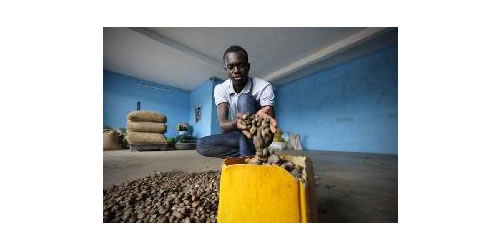Students Desert Amankwakrom Fisheries and Agric Tech Institute

Prospective students posted by the Computerised School Selection Placement (CSSP) to the Amankwakrom Fisheries and Agricultural Technical Institute (AFATI) in the Kwahu Afram Plains North District have refused to accept their admissions.
As if that is not enough, some of the students, out of the current total population of 36, have also decided to look for different schools, since the institute, which was established in 1975 during the National Redemption Council (NRC) regime, did not have the material resources to provide quality teaching and learning.
The institute, since its inception, has largely relied on students from within the catchment area of Afram Plains for admissions, and frantic efforts to woo prospective students outside the district have become a mirage.
The low enrollment and clear demonstration of dislike for the institute follows the lack of boarding and recreational facilities, funds to procure materials for practical training, prolonged absence of functional workshops, lack of school bus, and non-involvement in inter-schools sport festivals among others.
Amankwakrom is a resettlement township, where rental housing facilities are totally lacking, however, the institute was sited there, because, besides having vast fertile land of 1,071 square acres for farming, it was thought to be a prosperous fishing town.
The institute, which was established with the main aim of providing quality technical and vocational education and training skills delivery to meet Ghana’s socio-economic development, has suffered many setbacks since its inception.
It was initially abandoned some few years after its establishment by the NRC due to financial constraints, and re-started in 1996 by the National Democratic Congress (NDC), but its financial constraints continue to haunt it.
In an interview with the Eastern File at his office in Amankwakrom, the acting Vice Principal of the Institute, Mr. John Maekenzie Adeti, said the total neglect of the facility had negatively contributed to the overall performance of its students during final examinations.
Interestingly, the periodic two to five students who sit for the final examinations, find it difficult to either pass the written or practicals, because they lack adequate preparation, and are even unable to operate simple machines.
Though the institute is a promising one, following the fact that it is near one of the largest man-made lakes in the world, and would make the studies of fishing one of the best, continuous government neglect has made it a white elephant. The institute trains students in intermediate programmes such as Building and Construction Technology (BCT), Wood Construction Technology (WCT), Electrical Engineering, Fashion Designing and Hair Dressing.
In fulfillment of the general objectives stated above, the following specific objectives, such as provision of a conducive teaching and learning environment, and relevant programmes that meet the country’s socio-economic demand must be met.
The rest include the provision of a well-equipped workshop for skills development and training, and adequate and relevant training materials that would enhance skills training, ensuring female participation.
Also, the training of staff to meet the required challenges that inhibit skills development and training, ensuring an efficient and effective management system at all levels of operation, and encouraging the use of ICT in all programmes should be given attention.
Source: The Chronicle





